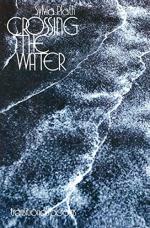|
This section contains 292 words (approx. 1 page at 400 words per page) |

|
Mirror (Poem) Summary & Study Guide Description
Mirror (Poem) Summary & Study Guide includes comprehensive information and analysis to help you understand the book. This study guide contains the following sections:
This detailed literature summary also contains Quotes and a Free Quiz on Mirror (Poem) by Sylvia Plath.
The following version of this poem was used to create this guide: Plath, Sylvia. "Mirror." All Poetry Online. https://allpoetry.com/poem/8498499-Mirror-by-Sylvia-Plath.
Note that parenthetical citations within the guide refer to the lines of the poem from which the quotations are taken.
Sylvia Plath’s "Mirror," published in 1961, presents a vulnerable insight into a woman's fears about mortality and aging. Uniquely composed from a mirror’s point of view, the poem is written in free verse and spans two 9-line stanzas. The poem starts off playfully, but gradually unravels its underlying terror and existential dread when the mirror becomes a reflection of the woman's inevitable aging. "Mirror" was later published posthumously.
"Mirror" was published shortly after Plath's second pregnancy ended in miscarriage, a traumatic event she explores in some of her other poems. Plath later wrote in a letter that her husband, Ted Hughes, beat her just days before her miscarriage. Known to battle depression from her early years, Plath died by suicided in 1963. "Mirror," like many of Plath's more famous poems, reflects the poet's insights on death, adversity, and tragedy. Specifically, "Mirror" engages with the topics of female beauty, identity, death, and aging.
"Mirror" begins with the speaker, an inanimate mirror, articulating its everyday view, its dimensions and appearance, and its thoughts on what is reflected and contained within its surface. Towards the end of the opening stanza, the mirror discusses “faces” (9), “darkness” (9), and a woman who visits it everyday, scrutinizing her appearance and lamenting the passage of time. Together, the poem ends on a note of resounding grief and fear: “In me she has drowned a young girl, and in me an old woman / Rises toward her day after day, like a terrible fish” (17-18).
Read more from the Study Guide
|
This section contains 292 words (approx. 1 page at 400 words per page) |

|



